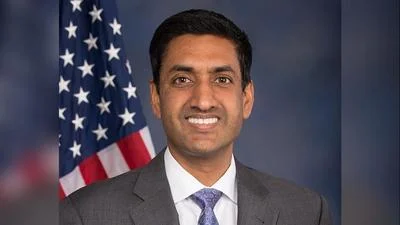John Taylor, Professor of Economics at Stanford University and developer of the "Taylor Rule" for setting interest rates | Stanford University
John Taylor, Professor of Economics at Stanford University and developer of the "Taylor Rule" for setting interest rates | Stanford University
This summer's Western heat waves have raised concerns about rotating power outages and record-breaking electricity demand in the region. According to new research by the Climate and Energy Policy Program at the Stanford Woods Institute for the Environment, expanding current schemes to share electricity among utilities could reduce outage risks by up to 40%. The study suggests that such a change could also support favorable public opinion and policy for renewable energy growth. This comes amid discussions on initiatives like the West-Wide Governance Pathways Initiative, led by Western regulators to create a multi-state grid operations and planning organization.
"Extreme weather events disregard state and electric utilities’ boundaries, and so will the solution needed to mitigate the impact," said study co-author Mareldi Ahumada-Paras, a postdoctoral scholar in energy science and engineering at the Stanford Doerr School of Sustainability. "Greater regional cooperation can benefit reliability under widespread stress conditions."
Electricity providers across the West are facing challenges due to unpredictable demand and resource availability caused by more frequent extreme weather events, increased rooftop solar installations, rapid growth of renewable energy sources like wind and solar, and varying state and federal clean energy goals. These factors necessitate new operating and planning strategies.
"New grid management approaches can capitalize on the opportunities created by our rapidly changing electricity system and address increasing stress from extreme heat, drought, and other climate-related events," said study co-author Michael Mastrandrea, research director of the Climate and Energy Policy Program.
The study examines a power grid spanning from the West Coast to the Great Plains and from western Canada to Baja California. Extreme heat events and severe droughts in recent years have significantly stressed this grid while reducing hydropower availability.
Using power system optimization models, researchers simulated grid operations under stress conditions similar to those during a 2022 California heat wave with record-breaking energy demand. Their findings indicate that expanded cooperation could reduce power outage risks by up to 40%, decrease unserved energy – when electricity demand exceeds supply – by more than half, and improve reliability.
A related webinar on Aug. 22 will present these results with discussions featuring energy experts about efforts to expand cooperation in Western electricity markets.
The researchers describe their estimates as "illustrative and directional" due to incomplete information making precise simulations challenging. Nonetheless, they emphasize that expanded utility cooperation can enhance responses to local shortages or excesses, offer greater flexibility in managing unexpected disruptions, balance supply with demand better, and ensure reliable electricity during extreme weather events.
According to researchers, expanded cooperation could also maximize the value of growing renewable energy portfolios in the region. Wind and solar power generation is variable; thus expanding geographic cooperation ensures optimal use or storage of renewable power when available. Critics may blame these sources for major outages; however, greater cooperation could prevent such narratives from affecting public opinion or policies against clean energy adoption or expansion.
"Our work shows how greater cooperation isn’t just about dollars and cents for utilities and their customers," said study co-author Michael Wara, director of the Climate & Energy Policy Program at Stanford Woods Institute for Environment. "It’s about keeping lights on as we confront challenges of energy transition amid growing impacts of climate change."
Wara along with Mastrandrea holds senior positions within Stanford Doerr School of Sustainability’s Sustainability Accelerator.
Media contacts:
Michael Wara: mwara@stanford.edu
Michael Mastrandrea: mikemas@stanford.edu
Mareldi Ahumada-Paras: mareldi@stanford.edu
Rob Jordan: (650) 721-1881; rjordan@stanford.edu
© Copyright Stanford University. Stanford, California 94305.




 Alerts Sign-up
Alerts Sign-up